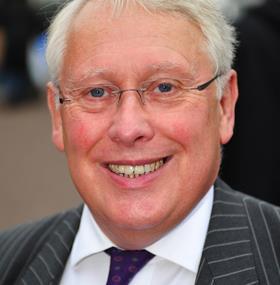MPs have made one last push to persuade the government to undo the effects of its controversial legal aid reforms as the Ministry of Justice reaches the final stages of a long-awaited review.
Labour MP Andy Slaughter, who helped to secure yesterday's three-hour Westminster Hall debate on the future of legal aid, told justice minister Lucy Frazer that 'it becomes wearing to hear minister after minister repeat the mantra that legal aid is an important part of our legal system and that all individuals must have access to justice, without ensuring that the resources are there to allow that to happen. That is a disconnect.'
Slaughter called on the government to restore funding for access to early advice, access to welfare advice and to simplify the criteria for obtaining legal aid. He said: 'Those will not be unfamiliar requests to the minister, but they encapsulate solutions to three major and predicted calamities of LASPO.'
Explaining the context of LASPO, Bob Neill, chair of the House of Commons justice select committee, said the legal aid system 'did not work as efficiently as it might.' Neill, a barrister, said: 'I can think of rolled-up conspiracy trials that went on for about six months, where two barristers for each defendant would ask about one question a week. Frankly, that was not an expenditure that could be justified, and it was not targeting things in the right way.'
However, the Conservative MP said successive governments, in seeking to reform legal aid, 'have run the risk of throwing out the baby with the bathwater'.

He said: 'In cutting down on some instances of needless expenditure that went beyond what was necessary to ensure justice, there is always a risk that the pendulum will go too far the other way. Having looked at the matter and tried as a lawyer to look at the evidence, I am sorry to say that I am driven to the conclusion that that is what has happened here.'
He added: 'If we believe in following the evidence, as we all do in any legal process, and if the evidence indicates that things have gone too far the other way and we have the chance to change them, there is no shame in admitting that. It would be honest politics, good government and entirely consistent with the spirit that the minister and her ministerial colleagues seek to bring to our approach. Where we can put things right, it is better to accept the position, act on the evidence and ensure that we have a better basis for legal funding and access to justice.'
Conservative MP Alex Chalk, a criminal barrister, told the minister: 'Sometimes the best advice that a lawyer can give at an early stage is, "For goodness sake, don’t litigate". If that good advice is given at an early stage, we can have a reasonable expectation that the courts will be properly allocated to deal with those disputes that they should be dealing with.'
After hearing speeches from several MPs, Frazer told the debate that 'at various points, an impartial observer might have thought that this government spend a paltry sum, or no money at all, on legal aid but that is not the case at all'. She insisted the government 'have not stood still on legal aid' before highlighting areas where the scope of legal aid has been widened.'
Frazer did not give details of what can be expected from the review, but once again confirmed that it will be ready by the end of the year.



























9 Readers' comments